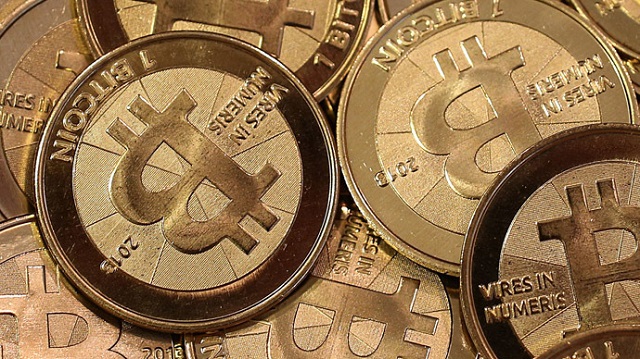
In line with global trends, Pakistan has embarked on studies to pave the way for introducing its own digital currency like the famous bitcoin cryptocurrency in a bid to expand banking facilities to the financially excluded, make easier the fight against money laundering and terror financing.
Besides, the virtual currency will assist the leadership in combating corruption – a key target of the current Pakistan Tehreek-e-Insaf (PTI) government. The PTI came to power in August 2018 on the slogan of eradicating corruption from the country.
“We are studying it (introduction of a digital currency by the central bank) very carefully,” State Bank of Pakistan (SBP) Governor Reza Baqir said in a recent interview to the international media outlet CNN.
“The benefit of that is twofold; not only that will give another boost to our efforts for financial inclusion, but also because it’s a central bank-issued digital currency, it will allow us to make further progress in our fight against money laundering and terrorism financing,” he said.
“We hope to be able to make some announcement on that (digital currency) in the coming months. For now, we have allowed a framework for digital banks to begin operating in Pakistan.”
The electronic currency will not replace the physical currency notes and coins overnight. The hard cash will continue to dominate for years and decades and the two currencies may coexist side by side in the system.
Read: Pakistani province plans to build pilot cryptocurrency mining farms
However, the Ministry of Finance may at least adopt the digital currency and increase its use over time to wipe out corruption, it has been learnt.
The largest benefit of digital currency is that each and every financial transaction is documented and the authorities may track who pays money to whom and for what purpose.
Government offices can also utilise the digital currency for making payments among different ministries, by the federal government to provincial administrations and by the provincial governments to local and district administrations and other government departments.
Similarly, the adoption of virtual currency – which is saved in computers and on mobile phone wallets unlike the physical currency and coins – will help the government in its drive against money laundering and terror financing in compliance with the action plan of the Financial Action Task Force (FATF) – the Paris-based global financial transactions watchdog.
Pakistan has increased compliance with 27 points of the FATF action plan over the past two years. Islamabad is expected to be placed in the FATF white list in the next few months.
Pakistan’s reclassification into the white list will enable it to attract fresh foreign investment and boost export earnings by making inroads into new global markets.
Moreover, the introduction of electronic currency will enable the authorities to expand banking facilities to the financially excluded people, document all financial transactions and economic activities at large.
At present, the money which is dispatched by one person to another through mobile and internet banking and through different applications is not digital currency. In fact, it is physical currency as hard cash comes into play at some point in time to complete financial transactions.
“Pakistan has 60-70% infrastructure in place for introducing a digital currency,” said tech expert Noman Said, who played a critical role in developing a smart city in Islamabad and built Ufone infrastructure as well.
“However, strict monitoring to shield the digital currency from cybertheft will remain a challenge … like the one every modern economy is facing these days,” said Said, who is also the CEO of SI Global.
The digital currency would largely benefit Pakistan in terms of increasing coordination between monetary and fiscal policies, he said, adding that the electronic currency would also help the country to attract fresh foreign investment.
Read more: Court gives Centre final extension in cryptocurrency case
Many central banks around the world including the People’s Bank of China, Bank of Japan and European Central Bank are working to introduce their own digital currency these days.
“We are doing a comprehensive internal study to know the trends in this regard (digital currency) at other central banks around the world,” Baqir said the other day.
“We will soon share the outcome of the studies … what are the possible considerations for us for introducing a digital currency by the central bank and what is the experience of other central banks in this regard,” the central bank governor said. “Pakistan has witnessed 100-200% growth in online banking during the Covid-19 pandemic as the country has a huge tech-savvy population.”
The number of registered online banking users surged 36% to 13.22 million, which increased the value of internet-based financial transactions to over Rs2 trillion amid the Covid-19 pandemic in the quarter ended September 30, 2020 compared to the same quarter of previous year.
“The increase in transactions through internet and mobile banking channels has been quite promising as these channels have provided an easy and round-the-clock alternative to customers during the Covid-19 pandemic to fulfill their daily financial and banking needs,” the central bank said in its Payment System Review for the first quarter (Jul-Sept) of current fiscal year released in December 2020.
Pakistan has a total of 180 million mobile phone connections in a population of 208 million while over half of them (95 million) use the advanced 3G/4G internet, according to the Pakistan Telecommunication Authority (PTA).
THE WRITER IS A STAFF CORRESPONDENT
Published in The Express Tribune, April 19th, 2021.
Like Business on Facebook, follow @TribuneBiz on Twitter to stay informed and join in the conversation.
COMMENTS (1)
Comments are moderated and generally will be posted if they are on-topic and not abusive.
For more information, please see our Comments FAQ



1729662874-0/One-Direction-(1)1729662874-0-165x106.webp)





1732084432-0/Untitled-design-(63)1732084432-0-270x192.webp)











Good